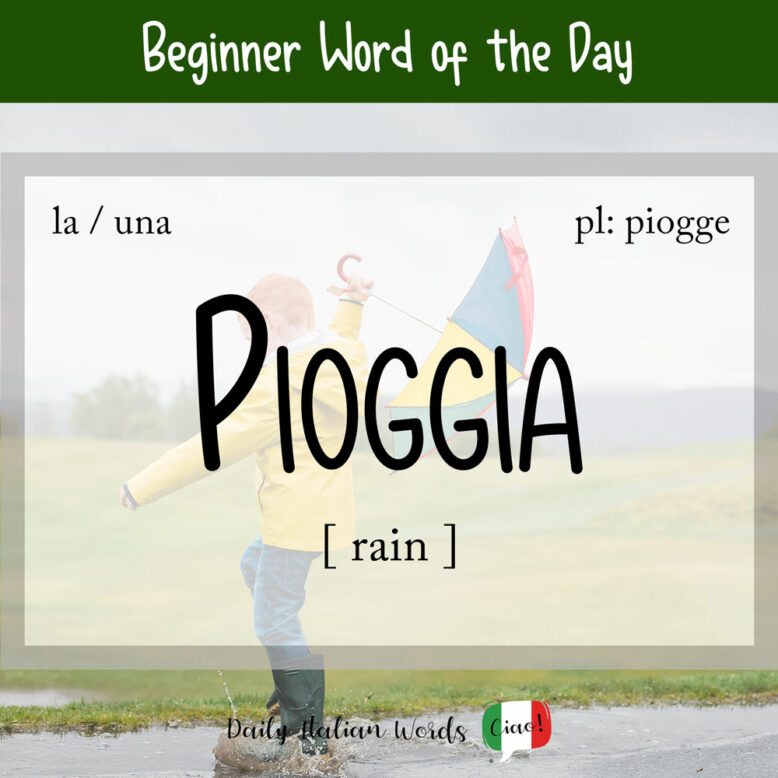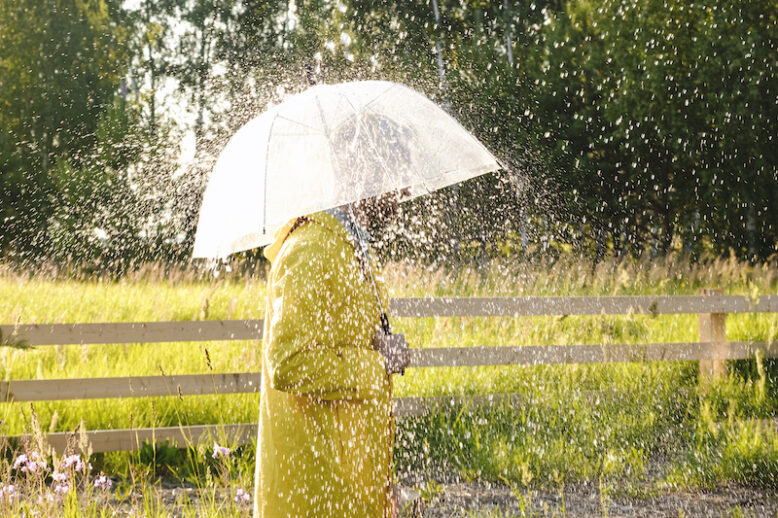Although Italy has a variety of microclimates, the rainy season generally occurs between March and May and again between September and November, with October and November being the rainiest months of the year. In the Piemonte region where I used to live, violent thunderstorms are also common during the peak summer months.
The word for rain in Italian is pioggia (feminine, plural: piogge) and the verb for to rain is piovere.

If the rain is light, Italians may describe it using the verb piovigginare instead of piovere.
Non sta piovendo forte, sta solo piovigginando. Non ci serve l’ombrello.
It’s not raining heavily, it’s only drizzling. We don’t need an umbrella.
Rain can come in various forms including pioggerella / pioggia fine (drizzle), pioggia acida (acid rain) and pioggia congelantesi (freezing rain).
There are four different expressions for rainy day in Italian, all of which are more or less interchangeable.
- giorno di pioggia
- giorno piovoso
- giornata di pioggia
- giornata piovosa
Secondo il meteo, martedì sarà una giornata di pioggia.
According to the weather forecast, Tuesday will be a rainy day.

Rainy weather (tempo piovoso) can be described in different ways depending on the intensity of the rainfall and what other kinds of meteorological conditions accompany it. A heavy downpour can be described as a diluvio or rovescio whereas a cloud burst is called an acquazzone.
A storm is called a tempesta if it is characterised by high winds or a temporale when there is thunder and lightning. A very violent storm with high winds, hail and heavy rain is known as a nubifragio.
Pioggia can also be used in a figurative way to describe a large quantity of something.
Marco ha ricevuto una pioggia di complimenti per il suo lavoro.
Marco has received a lot of compliments for his work.
Italian expressions related to rain
Fare due gocce
Literal translation: to make two drops
English meaning: to rain lightly, to spot with rain
Piovere a catinelle / dirotto
Literal translation: to rain in buckets / in abundance
English meaning: to rain cats and dogs
Piove sempre sul bagnato
Literal translation: it always rains on the wet
English meaning: when it rains, it pours
Non ci piove
Literal translation: it doesn’t rain
English meaning: that’s for sure, no doubt about it
Heather Broster is a graduate with honours in linguistics from the University of Western Ontario. She is an aspiring polyglot, proficient in English and Italian, as well as Japanese, Welsh, and French to varying degrees of fluency. Originally from Toronto, Heather has resided in various countries, notably Italy for a period of six years. Her primary focus lies in the fields of language acquisition, education, and bilingual instruction.


